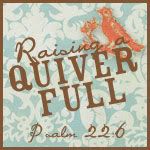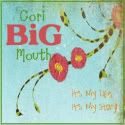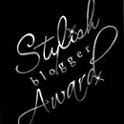Writing A Query Letter ... Do's & Don'ts
What advice would I give to others who are trying to write queries? I have heard many, many stories about query failures, even more stories about odd or offensive queries, and many rhetorical pleadings for proper query letters--all of these from agents, authors, and editors who have had to write or read queries over the years. My automatic response to a question about a query is to say, "Be polite!" My second response is to list seven points that address the basic and most common mistakes made in queries.
I'll address this advice to those who are querying agents, not publishers. (If I was querying a publisher, not an agent, I would consider the points listed below the agent-query advice.) The general advice is, for the most part, applicable to any business correspondence. For a professional writer, good communication means understanding your audience, addressing the needs of your audience, and communicating your points effectively.
If you are querying an agent:
1. Fit the query to the agent. If the agent says he handles horror but not SF, don't query him about SF.
2. Make your points quickly and succinctly. Don't flog a dead horse--if you do, it will only prove that you can't write well for a market (in this case, your agent).
3. Restrict yourself to one page, if possible; two if necessary. More than that, and you should start thinking about taking an ax to your query.
4. Be professional. Make sure your writing tone is confident and informative without being arrogant or obsequious.
5. Don't try to be witty unless you really are witty. There's little that's worse than a flat joke--it just demonstrates that your readers will probably be as unimpressed as this prospective agent.
6. Don't try to tell the agent how much he will love your work. It's up to him to decide how he feels about what he reads.
7. Proof your letter carefully! Good grammar and spelling are extremely important in this first-impression query. Remember, the agent will think this: if you don't care enough about your writing to proofread your 1-page query letter, your 400-page manuscript will probably be in horrible (translation: slushpile) shape.
If you are querying a publisher:
1. Follow all the steps for addressing an agent.
2. Include an outline of your manuscript on a separate page (or two pages), OR, include a more detailed synopsis on a separate page. I would still include the 1-2 paragraph book description in the initial query. Doing both allows the publisher to determine, at a glance, what kind of work you do and whether or not that house would be interested in your story. If the publisher does become interested, he can move on to the more detailed synopsis or outline.
3. Make sure to point out that the manuscript is completed.
4. Do not include a sample chapter unless the publisher specifically requests such a sample chapter be attached to a query. If you are going to send a sample chapter, make sure your work is registered with the U.S. Copyright Office before you mail anything to a publisher. Your work will be registered with the copyright office as soon as it is received, even if you don't get the official notification of that receipt until later. (Your publisher will later re-register your work in your name, if the manuscript is accepted for publication.




































0 comments:
Post a Comment